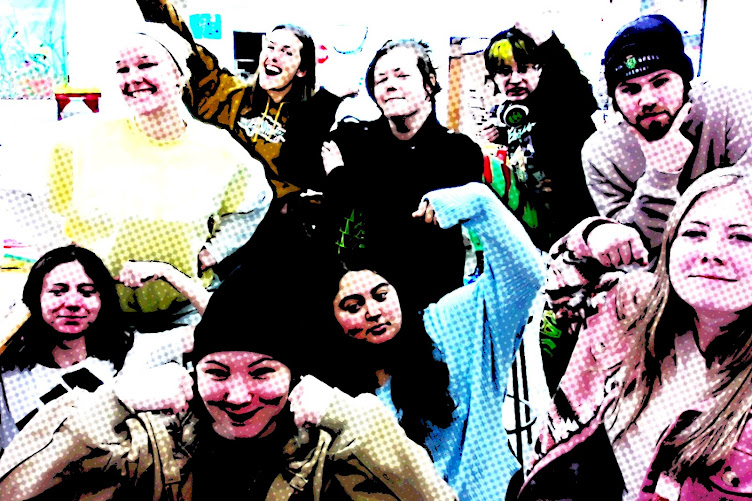Hello!
Today, we are going to interact and respond to chapter 11, which
discusses intergenerational learning. From this reading, the most important
concept was intergenerational learning within the community.
LATA 65 is a group that has come together to eliminate the
stereotypes of older generations and of street art. The goal is to open up
street art to all ages to create solidarity between all groups that are
involved. This group is empowering senior citizens to create tags that
represent them. The group then takes the citizens to a part of the town where
they are able to paint their tags on a surface.
What is intergenerational learning?
• Art
belongs to everyone, regardless of age (Greenberg, 2014). Intergenerational art
making in a community brings individuals from different age groups together to
make visual statements (p. 84).
• Some
participants who first engage in intergenerational partnerships may feel
apprehensive about working with people from different backgrounds. Fortunately,
as many of these fears dissolve participants can develop bonds and greater
understanding of one another (Mbugua, Wadas, Casey & Finnerty, 2014;
Wakefield & Ericson, 2003).
• Unsung
heroes are precious community resources who have the desire and skills to
assist teachers in achieving great education endeavors for their students.
Their services can truly benefit educators who may sometimes feel overwhelm by
large class sizes and/or lack of experience in that subject area (p.89).
• Our
society views senior citizens and people with hardships and/or disabilities as
people who need to be served rather than valuing the service these community
members can provide to society (Sommerfield, 1995).
• It
is important to focus on an individual strength and capabilities rather than
hardships and/or disabilities (p. 88).
Resources
Now that we have reviewed chapter 11, please respond to these
questions and
activity in your blog.
1)
What ways could you tap into your community to
enrich your curriculum? Please think of your own example and try to consider
our unsung heroes, people who's talents are sometimes hidden.
2)
If you invited a group of volunteers from a
different into your classroom, how would you prepare your students to have
appropriate and effective conversations? Please provide 3 examples.
3)
Define what a mentor means to you. Interview
someone in your life from another generation who has impacted your life.
Reflect on how a conversation with someone from another generation can
influence your art classroom. Provide a dialogue, photograph, or audio from
this experience.
“We learn from them “the children” and
they learn from us… words do not explain this. Like I
said, it’s a new beginning for me. It opened my eyes to new bigger
and better things in life, things I didn’t know about.
Anything is possible” (p. 87)


No comments:
Post a Comment